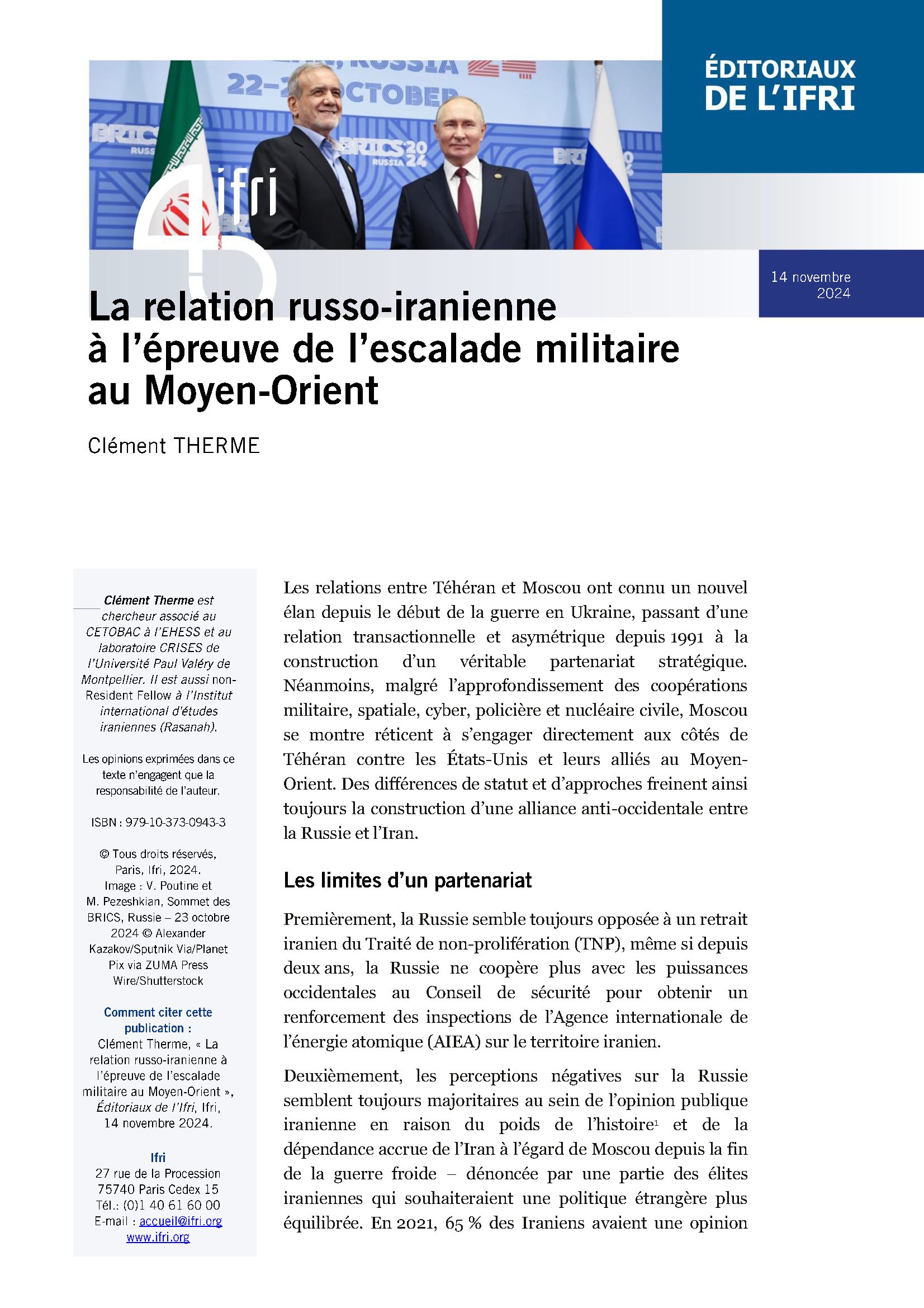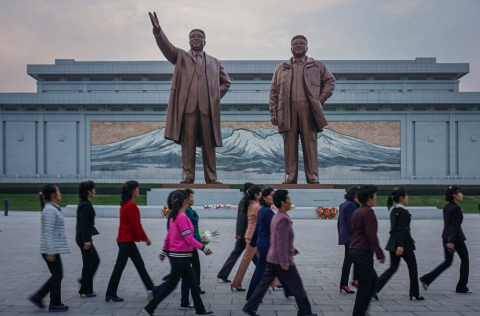1388 publications
Le jihad en Syrie et en Irak: un défi pour la France
Le jihad en Syrie et en Irak a attiré environ 15 000 volontaires étrangers dont 3 000 occidentaux. Parmi ces derniers, de nombreux Français. Les chiffres fournis par le ministère de l’Intérieur en novembre 2014 sont impressionnants : 1132 résidents français étaient alors impliqués dans les filières jihadistes. 376 étaient présents en Syrie ou en Irak, plus de 300 étaient décidés à partir de France, 184 étaient en transit, 199 avaient quitté les zones de guerre (dont 109, de retour en France, avaient été mis en examen) et 49 étaient décédés.
La Russie a-t-elle une stratégie en Asie centrale ?
La politique extérieure russe a négligé l’Asie centrale durant une grande partie de l’époque soviétique. Les choses évoluent désormais : les conjonctures régionale et internationale poussent Moscou à s’intéresser de plus en plus à l’Asie centrale.
Contest and conquest: Russia and global internet governance
For more than a decade, Russia’s foreign policy has sought to challenge the international consensus on a number of issues. Today, as the international internet ecosystem is becoming more volatile, Moscow is eager to shift the western narrative over the current global internet governance regime, in which the United States retains considerable leverage. In a context wherein states increasingly forge links between cyberspace and foreign policy, this article explores Russia’s deepening involvement in internet governance. The disclosure by Edward Snowden of the US government’s wide net of online surveillance contributed to legitimize the Russian approach to controlling online activity. While the struggle around the narrative of internet governance has been heating up since then, Russia actively seeks to coordinate internet governance and cyber security policies with likeminded states in both regional forums and the United Nations. By introducing security concerns and advocating more hierarchy and a greater role for governments, Moscow is contributing to the politicization of global cyber issues and seeking to reshape the network in accordance with its own domestic political interests. Indeed, the Russian leadership has come to consider the foreign policy of the internet as the establishment of a new US-led hegemonic framework that Washington would use to subvert other sovereign states with its own world views and values.
Regional Integration Within Greater China – State of Play and Future Prospects
Turquie : la quête du sur-classement
La Turquie, considérée comme un grand émergent à beaucoup d’égards, est toutefois un pays de taille moyenne et sans ressources propres, qui peine à obtenir les moyens de ses ambitions. Au vu de ces contraintes, Ankara tente constamment d’impressionner à travers sa doctrine politique et sa communication offensive.












